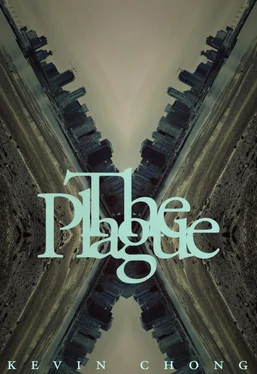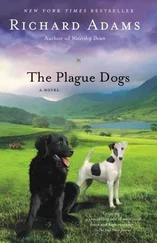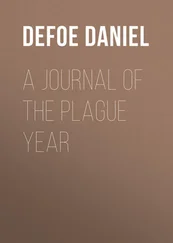Once the quarantine was imposed, Dr Bernard Rieux remained busy with walk-in traffic at his clinic. According to the diary he kept, a few patients presented the swelling and flu-like symptoms associated with the disease. He lanced their buboes and advised them to check into the hospital. They asked him how worried they should be. Rieux learned to parry back that worry didn’t matter, treatment did. “Take your time getting there,” he instructed. “How important is it to rush if you get hit by a car crossing the street?”
He told a handful of patients who had become infected to pack a good book. It was solid advice, innocuous enough, but the first time those words left his mouth he felt a twinge of disbelief. He didn’t usually offer suggestions like that and was wary of any overreach in a doctor’s authority. Why had he changed course? The disease had done this to him. He wanted to offer patients something, but he had no reassurances. His work frequently involved batting away unfounded fears, contextualizing symptoms, and limiting expectations. Patients often explained away danger, and he could frighten them into worry. But the surge of preparation that followed alarm would not do much to save his patients. He had nothing else to offer but to suggest they read while waiting.
To his relief, patients responded pleasantly to his advice; one asked for recommendations. Rieux named Leo Tolstoy, Chinua Achebe, and Virginia Woolf. “Stick to the books written by dead people,” he added. Contemporary literature, to him, felt too much like posturing.
His favourite patient, Walter, came in regularly, as expected. Walter was difficult. Aside from an occasional cold and high blood pressure, he was healthy, but he visited the clinic at least twice a week. Rieux did his best to hasten their appointments, but he knew that Walter’s interaction with him amounted to his only social outing of the day. His chart indicated that he was fifty-seven years of age, but he could have passed for any age between forty and sixty. His hands were rough from years as a dishwasher and a labourer in construction, but his face was remarkably soft (more remarkable because of the smoking). And he had the slight, hairless body of an active pre-teen.
Rieux looked at his file. “I understand you feel you were infected?” he asked.
“Of course I am,” Walter said, speaking into the fluorescent lights above him as he lay on the table. “Why wouldn’t I be targeted?”
Rieux inspected Walter thoroughly for signs of illness, knowing this might be the only time he was touched today. (Rieux’s theory was that Walter had once been a sensualist, but had forsworn human contact.) Walter explained that this variant of the disease had been manufactured in a laboratory, refracting theories he’d dug up from library internet terminals. “Of course it was manufactured,” Walter said. “Let’s talk about how smallpox exists only in the world in two laboratories. One in the States, and one in Russia. It’s a fact. Look it up. How easy would it be to manufacture the plague?” Disease had been exposed to the public as a form of population control. “Look at the deficits the government is running. Just think,” he said, tapping his head. “How much money would we save if all the poor people died? This outbreak is finishing the work that was started by the Annex.”
“I pay enough taxes as it is,” Rieux joked.
“You fucking doctors,” Walter said, sitting up. “You never get sick. You never know how it feels.”
“How are your hemorrhoids?” Rieux asked him. “Did the cream I give you work? Did you try it? I know it’s awkward to apply.”
“That’s where it begins.” He buttoned up his shirt. The thing with Walter was that he wanted to be sick, Rieux wrote in one of his diary entries. I’m not his healer but his witness. By disposition, Walter did not use any drugs, he remained homebound, but he had not yet exhibited any urges to run into traffic.
“A lot of us are getting swept up in the concern over this epidemic,” Rieux told him. “You don’t have it. Who knows? Maybe you’ll get it later.”
Walter’s mouth wobbled in withheld delight as he refocussed. “Dr Rieux, I come from a group—we’ve been beaten up by people who look like you. People who look like money. Do you know how many people I’ve seen die? Hundreds. Literally. Loved ones, friends, enemies. People who lived better lives than me. People who never did one thing wrong to anyone. This isn’t ‘survivor’s guilt.’ Everyone says that.”
Walter left as soon as his exam was over—for once. His appointment came before Rieux’s lunch break. That day, the second one of the quarantine, Rieux saw his friend and mentor, Dr Orla Castello. They had run into each other earlier in the fall at Whole Foods. In the produce aisle, they made a lunch date on their respective smartphones. She had only two white potatoes and half a pomegranate in her basket. Since that interaction, the date had been pushed back twice already. In Vancouver, the effort of staying in touch and the affections stirred by seeing an old friend’s name appear on your screen before you messaged them to postpone felt more friendship-affirming than actual socializing. Seeing that old friend, once excuses could not be summoned, often underscored the growing chasm between two people.
As Chief Medical Health Officer at the Coastal Health Authority, Castello could credibly claim to be engrossed in her work. Rieux expected another postponement, if not an outright cancellation. Instead, she’d called to confirm their get-together. “I need a break,” she told him. “And you owe me a distraction.”
Long ago, Rieux had been Castello’s student at medical school. As a teacher, Castello was a divisive figure. Rieux’s peers felt she rambled too much, openly contradicting information on her own PowerPoint slides, and assigned grades by whim. Others, like Rieux, were charmed by her anecdotes and her tailored tweed suits. To them, her laughter seemed like champagne, acidic and sugary. They became part of her coterie. Rieux was her unsurpassable favourite. After Rieux had been evicted from his basement apartment, Castello and her then-husband, Victor, took him in for a month. Rieux stayed in the guest room. He tutored their sixteen-year-old son, Adam, for his essay on Brave New World. He walked their bull mastiff on rainy days. She would serve him tea and biscuits in the afternoon and they would talk about anything but medicine. Rieux would describe her as a polymath—she spoke five languages and was an accomplished violinist—if not for the implied strain of being good at many things. To be around her was to waft in the webs that connected science and culture.
Castello chided him for being too serious. She felt that he carried a weight that originated in his father’s premature death and later, the sense of shame he experienced as his mother struggled to support two children. For years she had prodded him to find someone to love. Vivid descriptions of fascinating, lovely women accompanied by cell-phone snapshots would erupt from Castello every time they visited. Elyse, the daughter of a partner in Victor’s law firm, had likely been mentioned more than once. Castello had decided that her protégé needed to marry. He’d turned down all the offers and refused the invitations to her garden parties where chance meetings with eligible women could be engineered.
Today, Castello picked a favourite downtown lunch spot, a place crammed with mismatched second-hand tables and chairs. This café, normally so busy at lunch hour, was nearly empty. The menu items were listed on gilt-framed chalkboards. As he expected, Castello was waiting for him, contained in a pool of light. She already had tea and a sandwich.
Читать дальше












